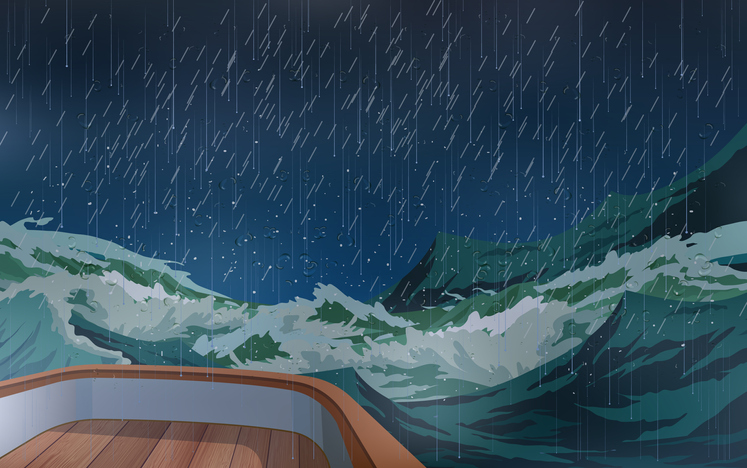
Coming out stronger on the other side of the storm
Over the years, I have spent a lot of time thinking about, analyzing, and even critiquing the American Jewish community. I learned and studied it as a Religious Studies undergrad, with a minor in Jewish Studies, and in grad school at Hebrew Union College, where I earned my master’s degree in Jewish Communal Service. Plus, I studied it some more as I worked towards earning my Certificate in Jewish Leadership which I did at the beginning of 2022.
I provided all of this as a context for what I am about to share.
Beginning in the 1950s, much of the focus of Jewish life and learning was being done as a reaction to World War Two and the Holocaust. Children (and adults) were taught that because we lost so many people, their Jewish experiences and education were necessary to keep Judaism alive. That mentality continued over the years, and only within the last 15-20 years or so it began to wain.
A proactive approach to Judaism followed—celebrating the richness, diversity, teachings, and community aspects of Judaism began to flourish. This led to a virtual boom of how people saw themselves as Jews, their place within the Jewish community, and how they wanted to express themselves Jewishly. And as a result, national surveys and studies were conducted to analyze how this shift was impacting the future of the Jewish community, including Pew Research Center’s 2013 and 2020 studies that focused on the evolving nature of the Jewish community. Following each of these studies, leaders of Jewish organizations and communities were forced to grapple with, rethink and reimagine how they were going to deliver Judaism to “their” communities.
Then over the last couple of years, the Jewish world has been confronted with the rise of antisemitism, the likes of which we have not seen for well over 50…60…70 years. Between this and the laser-sharp focus and attention to security that has been thrust upon the Jewish world due to attacks at synagogues and other Jewish locations, we find ourselves at a crossroads.
How can we celebrate Jewish life when so much energy and emphasis is being placed on confronting the antisemitism we see today—once again being forced to defend our right to exist as a people? How do we ensure that community members feel safe enough to want to attend Jewish activities and events that celebrate our heritage and culture? And what will now motivate people to decide to attend or participate? These are the types of questions my staff and I, as well as other Jewish professionals, are wrestling with every day as we continue to provide opportunities for people to connect with, feel a part of, and feel safe within our local Jewish community.
And yet, as a Jewish leader who continues to work hard to address and mitigate all of these issues, I am comforted in knowing one simple fact. We have been confronted by far worse problems and situations in our history. And in each instance, Judaism has survived, evolved, and adapted. So that gives me hope and faith that we will weather this current storm, continue to evolve and come out the other side stronger.
Jason Moss is executive director of the Jewish Federation of the Greater
San Gabriel and Pomona Valleys.









